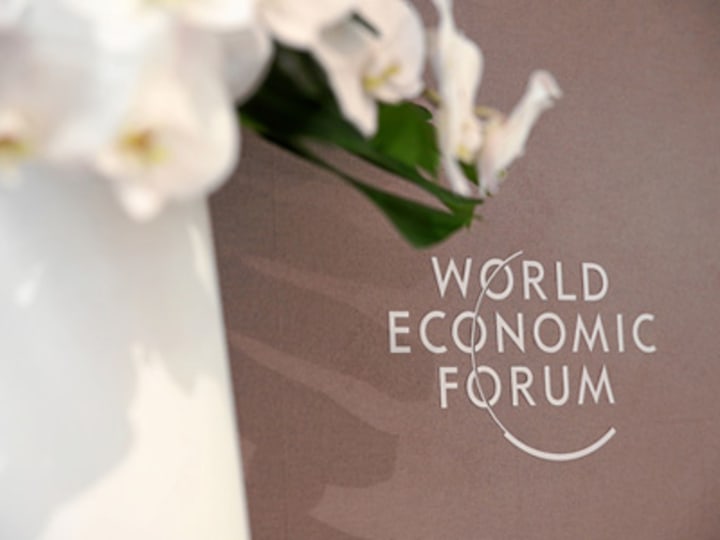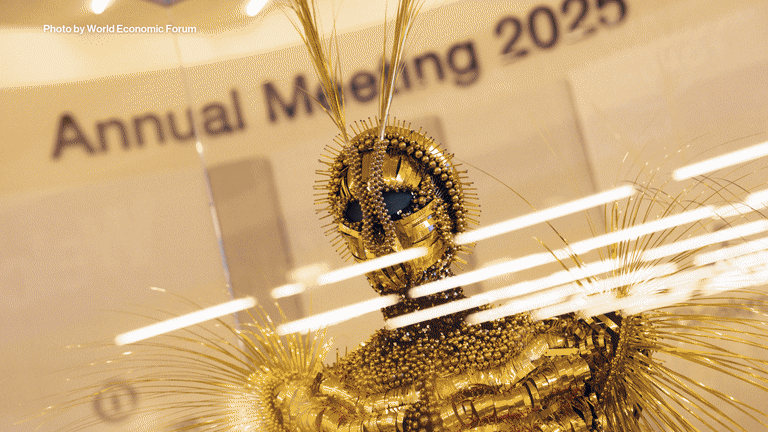
It’s that time of the year again when world leaders, high-level aid officials, philanthropists, corporate CEOs and celebrities gather in Davos, Switzerland to attend the annual World Economic Forum.
The event, in 2014 under the theme “Reshaping the World,” will feature apart from heads of state and government big names — from billionaire philanthropist Bill Gates and former U.S. Vice President and climate change advocate Al Gore, to Hollywood actor and Water.org co-founder Matt Damon.
What will they be talking about? A lot, considering the over 250 planned sessions for four days. We asked several development officials attending the meeting where they are headed and what they expect to be the buzz. Here’s what they told us:
1. Youth unemployment
Remember the Arab Spring? It’s been three years, but unemployment remains a huge crisis across the region, and beyond. The topic will be featured in several discussions, from lessons learned from the crisis to exploring ways on how the public and private sector can help address youth unemployment. But that’s not all. Bam Aquino, a prominent Philippine senator, shared he will be participating in numerous sessions on entrepreneurship, impact investment and the benefits of social enterprise — issues that the young politician and Devex Manila 40 under 40 development leader is and will be pushing for in his legislative agenda this year.
2. Microfinance
The issue has spurred mixed reactions from the development community, but the fact is that financial inclusion remains elusive for most people in remote areas or those that are “too poor or too young,” according to Plan International CEO Nigel Chapman. Chapman will be concentrating on this at Davos, particularly the role that nonprofits can play in filling the gap left by most microfinance institutions — the focus of a commissioned report coming out on Wednesday by Yale economist Dean Karlan. John Schiller, Plan’s savings group advisor, said: “The formal microfinance institutions focus on credit and savings products. They’re making increasing use of technology to help them reach out to the poor and eventually they’ll probably be successful in expanding their customer base. But that’s going to take time. The question is, what do we as an NGO with a presence in tens of thousands of poor communities do in the meantime?”
3. Inequality
Inequality will figure prominently in the discussions at WEF — but Oxfam will not just be focusing on gaps in income, but also on policies that a new report notes is increasingly favoring the rich. The organization will be asking world leaders to ignite efforts to crack down on tax dodging, end financial secrecy and provide all of its citizens equal social benefits, from universal health care, education to social protection. Winnie Byanyima, Oxfam executive director, noted in a statement: “We cannot hope to win the fight against poverty without tackling inequality … Without a concerted effort to tackle inequality, the cascade of privilege and of disadvantage will continue down the generations.”
4. Climate change
There will be a lot of seminars and meetings on climate change, particularly on Thursday and Friday. Aid groups will be interested to see what the private sector — the big corporations — will put on the table to tackle deforestation, green energy and other climate-related issues.
U.N. Secretary-General Ban Ki-moon “is basically putting a lot of pressure on the participants in Davos to come up with some really clear, innovative thinking on how we can tackle climate change,” said Oxfam spokesperson Matt Grainger. It’s unclear whether the Green Climate Fund will come up in the discussions, as the spokesman predicted the focus would most likely be on what can businesses do to move toward a low carbon future, although there’s a chance the 2030 climate targets will figure in the discussion. After all, noted Grainger, “business need politics behind it to move.”
5. Syria
On Wednesday, while world leaders gather in Montreux, Switzerland, for the second round of peace talks aimed at ending the Syrian crisis, the eight heads of some of the biggest humanitarian organizations — among them Save the Children, CARE, World Vision and Oxfam — will be calling on them from Davos to “amplify efforts” on humanitarian access, involving more women on peace negotiations, arms embargo, and more aid. “Basically, how we need to amplify the need for a diplomatic, political solution to the crisis as well as aid to the most affected, and some kind of push for localized ceasirefore and ensure populations aren’t being affected by the tactics of war,” explained Grainger.
How about you? What are you looking forward to at Davos? Share with us your thoughts below, or tweet us @devex.
Read more development aid news online, and subscribe to The Development Newswire to receive top international development headlines from the world’s leading donors, news sources and opinion leaders — emailed to you FREE every business day.




